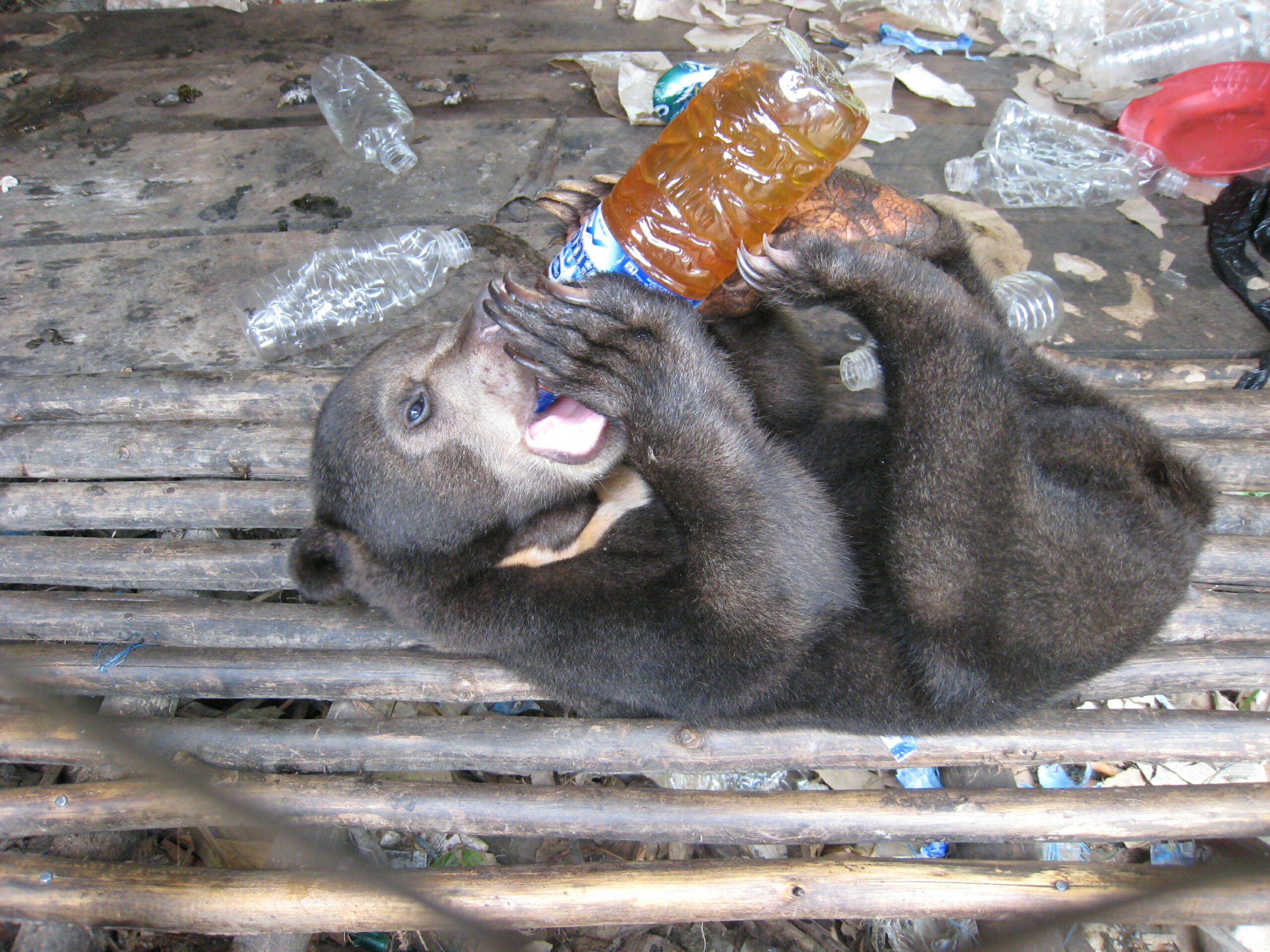Bears are sought after for use in traditional medicines, for consumption and live as pets. Indonesia, a well-known hub of illegal wildlife trade (IWT), has a thriving trade in bears yet very little is known of the current status of this trade. This lack of information is an obstacle to conservation actions and hinders efforts to end this illegal trade and ultimately protect bears in the wild.
Understanding the drivers behind the trade, the sources of the bears and other relevant dynamics is key to developing a strategy to counter this crime. Investigating legal deterrents, such as seizures and penalties is also essential in order to better support enforcement efforts and to inform policy decisions. While some work has been done to collect and compile this information, major components of data are missing or outdated, hampering conservation efforts.
With financial support from Bears in Mind, the team from Monitor Conservation Research Society (Monitor) intends to fill these knowledge gaps and use the resulting information to support effective enforcement efforts, strengthen national policies and to catalyse conservation efforts in Indonesia to better protect bears from the illegal wildlife trade.


